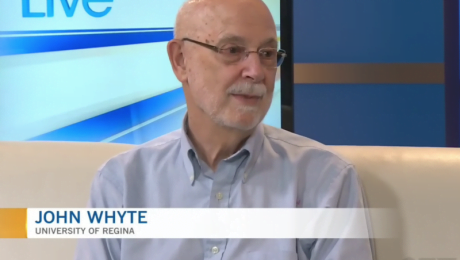Keyword: Fethullah Gulen

The Battle For Turkey’s Soul
It is ironic and tragic that at a time when the world is in dire need of a liberal-moderate Islamic movement in its fight against Wahhabi-Salafi inspired global Islamic terrorism, the Erdogan regime is bent upon destroying the Gulen movement by labelling it as “terrorist”.

Inside the eye of Turkey’s political storm, in rural Pennsylvania
A moderate preacher rooted in the Sufi mystic tradition of Islam, Mr. Gulen is known for emphasizing interfaith dialogue. But Mr. Erdogan calls Mr. Gulen and his followers a “cancer” and a “terrorist organization” that is building a “parallel state.” The rancour is personal.

The Guardian view on the week in Turkey: coup – and counter-coup?
Now, with the European convention on human rights suspended and a six-month state of emergency that allows President Recep Tayyip Erdoğan to rule without parliament – although thousands still turn out nightly in his support – some are beginning to wonder if the cure has turned out to be little better than the original threat.

Closer look at empire of cleric accused in Turkey coup attempt
Turkey’s crackdown of those suspected in the failed July 15 military coup widens, with the firing of 492 people at its top Islamic authority. Turkish President Recep Tayyip Erdogan is zeroing in on a Muslim cleric living in rural Pennsylvania, whom he accuses of masterminding the coup attempt.

A reality check on [Turkey coup attempt] from America’s spy chief
Asked whether Turkish allegations that cleric Fethullah Gulen planned the attempted coup passed the “smell test” of credibility, National Intelligence Director James Clapper answered: “No. Not to me.” He said that Secretary John Kerry “was right on the ball” to press the Turks to back up their extradition request with evidence of Gulen’s involvement.

The Gulen Movement Is Not a Cult — It’s One of the Most Encouraging Faces of Islam Today
How will it end? Erdogan has beaten Hizmet decisively. But he is planting the seeds for his own destruction. How and when he will fall remains unclear. Meanwhile, on the international scene, Turkey is rapidly becoming a pariah. The country itself is now his primary victim.

Question in the aftermath of the Turkey coup – Who is Fethullah Gulen?
Gülen embraces an inclusive and peaceful understanding of Islam. His commitment to dialogue and altruism has inspired the Hizmet Movement. Mr. Gülen and Hizmet participants are known for their commitment to peace, democracy and non-violence, and oppose turning religion into a political ideology.

Chicago organization welcomes new scrutiny amid fallout of failed Turkish military coup
“The Hizmet movement has nothing to hide,” Alexander said. “We’re hoping people can learn more about it. Since Gulen is being accused of this, there will be greater scrutiny of the Hizmet movement, and we invite that scrutiny.”

Of judges and coupists – Recent coup attempt in Turkey
Let me put it on record that I’m one of the few who strongly believe the alleged coup attempt could have been stage-managed to give Tayyip Recep Erdogan the justification to clamp down on real and perceived opponents to his ambition to rewrite the constitution and transfer the centre of executive power from the office of the Prime Minister to the office of the President, which he presently occupies.

NY Times Editorial Board: Mr. Erdogan’s Reckless Revenge
At such a time, one would hope for a leader willing and eager to unify his people under the rule of law, to reaffirm democratic values and to address the grievances that motivated the plotters in the first place. So far, Mr. Erdogan seems determined to fail this test of leadership.






















